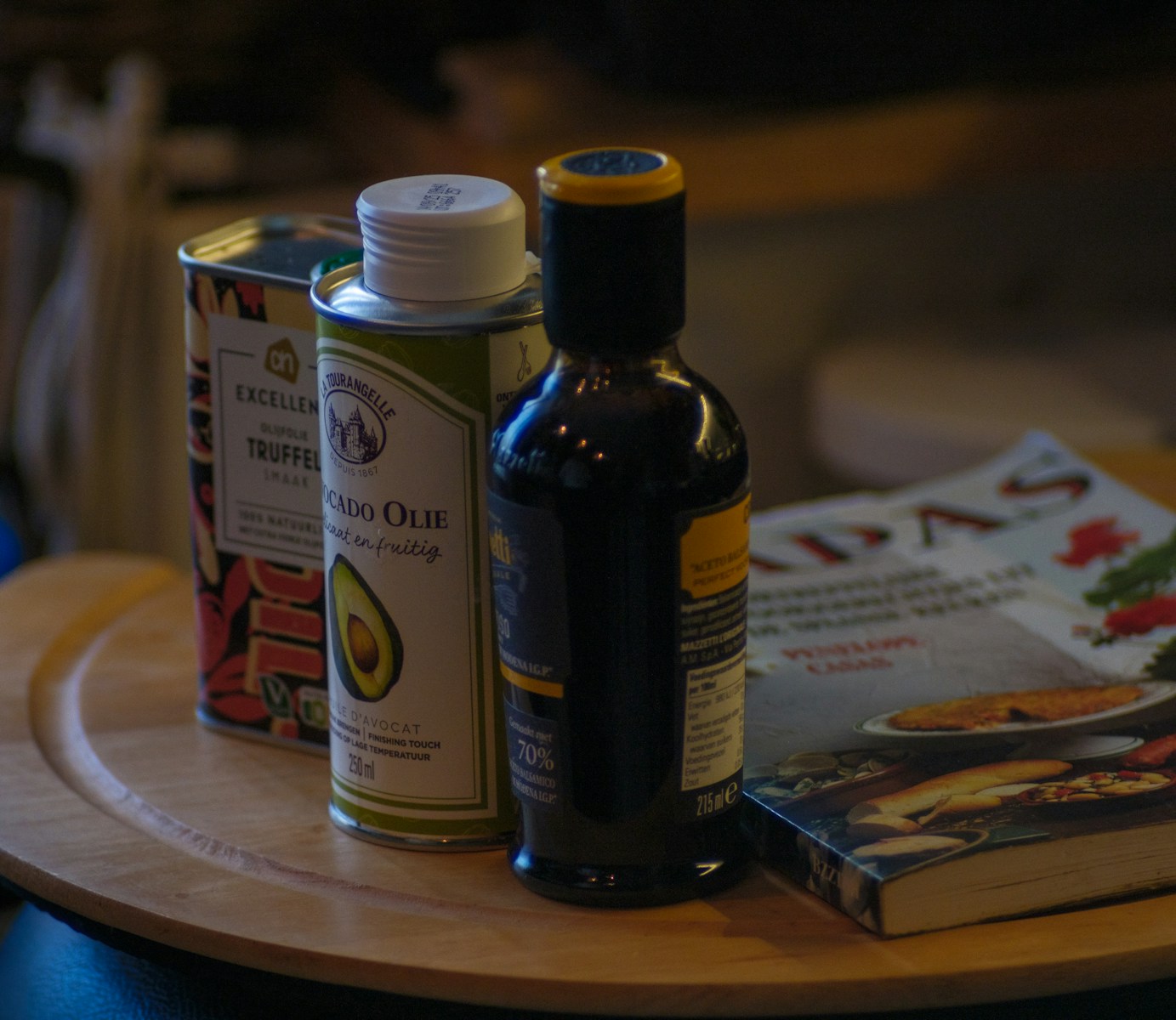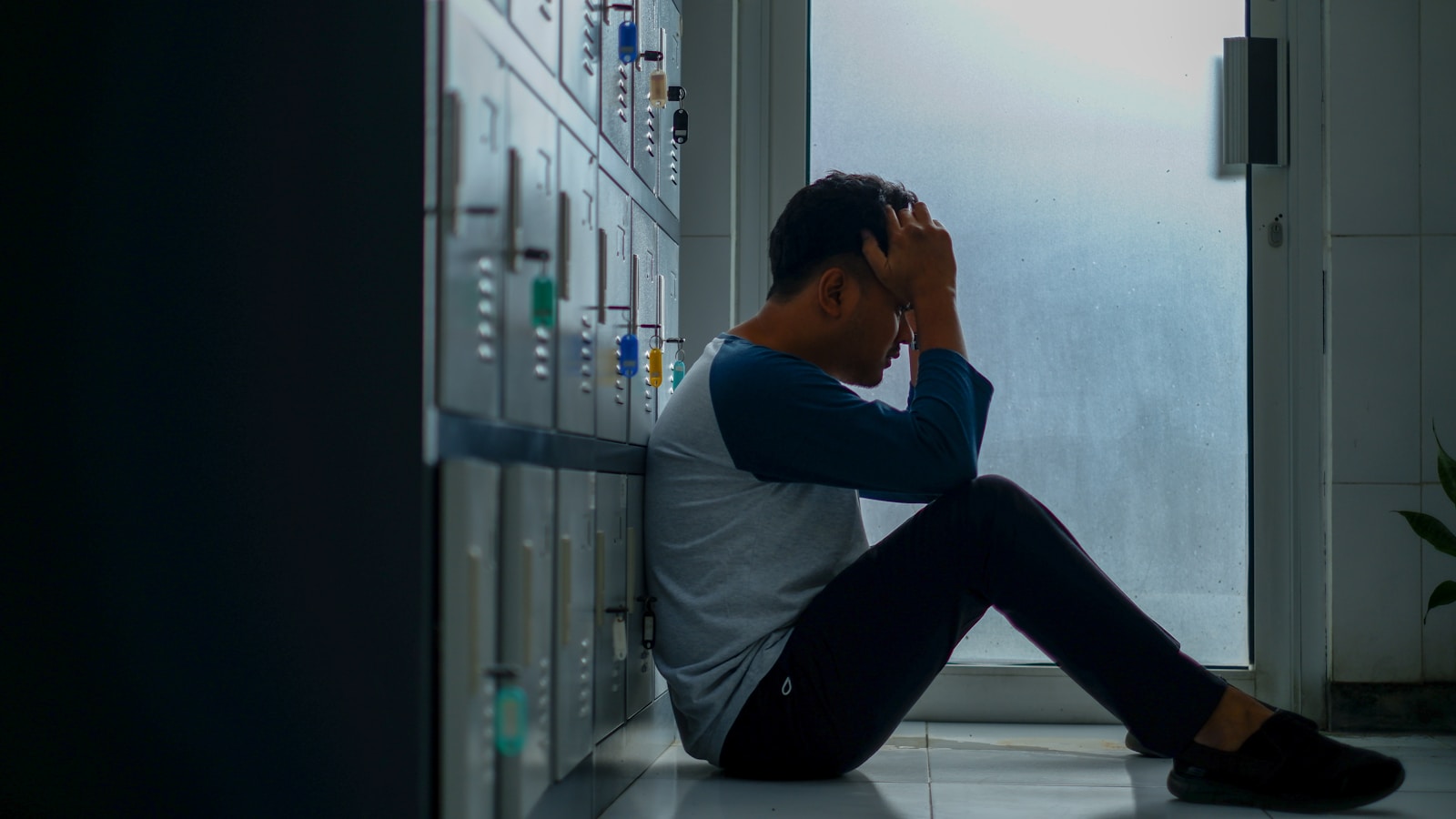How to Use Essential Oils for Stress Relief at Home and Work
Look, I’ll be straight with you. How to use essential oils for stress relief at home and work isn’t some mystical practice that requires a PhD in aromatherapy. I’ve spent years figuring out what actually works, and I’m about to share everything that’s made a real difference in my life and the lives of people I work with.
Let me start with a question: How many times have you sat at your desk, shoulders up to your ears, jaw clenched, thinking “there’s got to be a better way to handle this stress”? Or maybe you’re the parent who collapses on the sofa after putting the kids to bed, wondering why you feel like you’ve been hit by a lorry?
I get it. Stress is everywhere – your boss breathing down your neck, the mortgage that needs paying, kids who seem to have boundless energy when you’re running on fumes. The good news? Essential oils can be your secret weapon, and I’m going to show you exactly how to use them without any of the woo-woo nonsense.
1. Essential Oils for Stress Relief
The Science Behind Why This Stuff Works
Before we dive into the practical bits, let’s talk about why essential oils for relaxation at home actually work. When you smell lavender, for instance, it doesn’t just smell nice – it literally changes your brain chemistry. The molecules travel straight to your limbic system, which controls emotions and stress responses.
I remember the first time I properly understood this. I’d been sceptical for years, thinking aromatherapy was just fancy-smelling snake oil. Then I tried a proper lavender oil during a particularly brutal work week. Within minutes, I could feel my shoulders dropping. That’s when I knew there was something real here.
Best Essential Oils for Stress Relief
Let me cut through the marketing fluff and tell you which oils actually move the needle:
Lavender
- Why it works: Reduces cortisol levels and increases GABA activity
- Best for: General anxiety, sleep issues, overwhelming stress
- How I use it: 3-4 drops in my diffuser an hour before bed
Bergamot
- Why it works: Lowers blood pressure and heart rate
- Best for: Work stress, morning anxiety, depression-linked stress
- How I use it: One drop on my wrists before difficult meetings
Frankincense
- Why it works: Slows breathing and promotes deep relaxation
- Best for: Chronic stress, meditation, overwhelm
- How I use it: Mixed with carrier oil for evening neck massage
Ylang Ylang
- Why it works: Balances nervous system, reduces blood pressure
- Best for: Anger-related stress, relationship tension
- How I use it: In my car diffuser during stressful commutes

2. How to Use Essential Oils at Home
The Bedroom
Your bedroom should be a stress-free zone, and lavender oil for sleep and stress is your best mate here. Here’s my exact routine:
Evening Wind-Down Protocol:
- 7:00 PM: Start diffusing lavender (4 drops) + chamomile (2 drops)
- 8:30 PM: Apply diluted lavender to pillow corners
- 9:00 PM: Roll bergamot blend on pulse points
- 9:30 PM: Deep breathing with frankincense on temples
I learned this the hard way after months of lying awake, mind racing about work. Now? I’m out within 15 minutes, most nights.
The Living Room
This is where most family stress happens – homework battles, sibling squabbles, partner disagreements. Here’s how to transform it:
Family-Friendly Blends:
- Sweet orange + lavender: Calms without sedating
- Lemon + peppermint: Energising but not overwhelming
- Geranium + bergamot: Balances emotions during difficult conversations
Pro tip: I keep a small diffuser running low throughout the day. The key is subtlety – you want people to feel calmer without consciously noticing the smell.
The Home Office
Working from home comes with its own stress cocktail – isolation, distractions, and the blur between work and personal life. Here’s my setup:
Morning Focus Blend:
- Rosemary (2 drops) for mental clarity
- Lemon (3 drops) for alertness
- Peppermint (1 drop) for energy
Afternoon Slump Fighter:
- Eucalyptus (2 drops) to clear brain fog
- Orange (3 drops) for mood lift
- Basil (1 drop) for concentration
Kitchen
Meal prep, family dinner chaos, endless washing up – the kitchen can be a stress tornado. Combat this with:
Cooking Stress Busters:
- Thyme: Naturally antibacterial and calming
- Lemon: Cuts through cooking odours and lifts mood
- Rosemary: Mental clarity for complex recipes
Add 2-3 drops to a small diffuser, or better yet, cook with herbs that contain the same compounds as your favourite oils.
Workplace Stress Relief
Using oils at work requires a different approach. You can’t exactly whip out a massive diffuser during board meetings. Here’s how I handle it:
Desk Setup for Maximum Calm
The Discreet Approach:
- Personal inhaler sticks: Loaded with your stress-busting blend
- Rollerball bottles: Keep in your desk drawer for pulse point application
- Tissue drops: 1-2 drops on a tissue, kept in your pocket
My Go-To Work Blends:
- Pre-meeting calm: Bergamot + frankincense
- Deadline pressure: Peppermint + rosemary
- Difficult colleague situations: Lavender + sweet orange
Meeting Room Strategies
I’ve learned you need to be strategic about this. Here’s what works:
Before Important Meetings:
- Apply diluted bergamot to wrists 10 minutes prior
- Take three deep breaths with personal inhaler
- Keep a tissue with calming blend in your pocket
During High-Stress Presentations:
- Frankincense on temples (diluted, obviously)
- Grounding breath work between talking points
- Lavender rollerball on pulse points if you’re wearing long sleeves
3. Stress and Physical Health
Here’s something most people don’t realise – chronic stress literally changes your body at a cellular level. I’ve seen this firsthand with clients who come to me with “mysterious” health issues that all trace back to stress.
How Stress Wrecks Your Body
The Cascade Effect:
- Elevated cortisol → weight gain around the middle
- Chronic inflammation → joint pain and brain fog
- Disrupted sleep → compromised immune system
- Muscle tension → headaches and back pain
Essential Oils for Physical Stress Symptoms
For Muscle Tension:
- Wintergreen + peppermint: Natural muscle relaxers
- Eucalyptus + rosemary: Improve circulation and reduce inflammation
- Marjoram: Specifically targets muscle spasms
For Digestive Stress:
- Ginger: Calms nausea and improves digestion
- Fennel: Reduces bloating and stomach cramps
- Chamomile: Soothes the entire digestive tract
For Immune Support During Stress:
- Tea tree: Powerful antimicrobial properties
- Lemon: Supports lymphatic drainage
- Frankincense: Reduces systemic inflammation

4. Stress Relief for Men
Let’s address the elephant in the room – men are often terrible at dealing with stress. We’re taught to “man up,” “push through,” and “don’t show weakness.” But here’s the thing: chronic stress will absolutely destroy your performance, your relationships, and your health.
Why Men Struggle with Stress Management
The Cultural Programming:
- Taught that stress is “just part of success”
- Discouraged from seeking help or showing vulnerability
- Often use destructive coping mechanisms (alcohol, overwork, isolation)
Essential Oil Blends for Stress
I’ve found that men respond better to certain scents and approaches:
“Executive” Blend:
- Cedarwood (grounding, masculine scent)
- Vetiver (earthy, sophisticated)
- Bergamot (citrusy but not flowery)
“Gym Bag” Blend:
- Eucalyptus (invigorating)
- Peppermint (cooling)
- Tea tree (fresh, clean)
“Workshop” Blend:
- Pine (familiar, comforting)
- Orange (energising)
- Black pepper (spicy, warming)
Practical Application for Men
Morning Routine:
- Shower steam: 2 drops eucalyptus on shower floor
- Aftershave alternative: Diluted cedarwood + jojoba oil
- Car diffuser: Pine + orange for commute
Work Stress Management:
- Keep vetiver rollerball in jacket pocket
- Use peppermint inhaler between meetings
- Apply bergamot blend to pulse points before difficult conversations
Evening Decompression:
- Add frankincense to evening shower routine
- Use lavender + cedarwood in bedroom diffuser
- Apply marjoram to shoulders and neck after gym
5. Stress Relief for Kids & Teens
Kids today face unprecedented stress – academic pressure, social media, family dynamics, and an increasingly uncertain world. Essential oils can be incredibly helpful, but you need to approach this differently than with adults.
Understanding Stress in Young People
Common Stress Triggers:
- School performance pressure
- Social dynamics and bullying
- Family conflict or changes
- Overscheduled lifestyles
- Technology overwhelm
Safe Essential Oil Practices for Children
Age-Appropriate Guidelines:
- Under 2 years: Diffusion only, very diluted
- 2-6 years: Gentle oils, maximum 0.5% dilution
- 6-12 years: Expanded oil selection, 1% dilution max
- Teens: Adult dilutions acceptable, with education
Best Essential Oils for Stress Relief in Young People
Gentle Options for Younger Children:
- Lavender: Universal calmer, great for bedtime
- Chamomile: Soothing for tantrums and upset
- Sweet orange: Mood lifting without overstimulation
Options for Older Kids and Teens:
- Bergamot: Excellent for academic stress
- Geranium: Balances emotions during hormonal changes
- Frankincense: Helps with focus and overwhelm
Practical Application Strategies
For Younger Children (5-10 years):
- Bedtime routine: Lavender in diffuser 30 minutes before bed
- School anxiety: Orange + lavender rollerball on stuffed animal
- Tantrum prevention: Chamomile on a favourite blanket
For Tweens and Teens (11-18 years):
- Study stress: Rosemary + lemon diffuser blend
- Social anxiety: Personal inhaler with bergamot + frankincense
- Emotional overwhelm: DIY pulse point roller with their chosen scents
Teaching Kids About Stress Management: Make this educational, not just reactive:
- Explain how different scents affect mood
- Let them choose their favourite calming oils
- Create “stress toolkits” they can use independently
- Model healthy stress management yourself
6. Long-Term Stress Management
Here’s where most people go wrong – they use essential oils as a band-aid instead of building actual stress resilience. Real stress management is about creating systems that prevent overwhelm in the first place.
The Stress Management Pyramid
Foundation Level: Basic Needs
- Consistent sleep schedule (7-9 hours)
- Regular movement (doesn’t have to be gym torture)
- Proper hydration and nutrition
- Meaningful social connections
Level 2: Stress Response Tools
- Essential oil protocols for different stress types
- Breathing techniques and mindfulness
- Physical stress release methods
- Boundary setting and saying no
Level 3: Stress Prevention
- Life design that aligns with your values
- Regular stress audits and lifestyle adjustments
- Proactive recovery and restoration practices
- Long-term health optimisation
Creating Your Personal Stress Protocol
Daily Maintenance:
- Morning: Energising oils + intention setting
- Midday: Check-in with stress levels, apply oils if needed
- Evening: Calming oils + reflection on the day
Weekly Reset:
- Sunday: Plan stress management for the week ahead
- Wednesday: Mid-week stress audit and adjustment
- Friday: Celebrate wins and release work stress
Monthly Review:
- Assess which oil blends served you best
- Identify recurring stress patterns
- Adjust protocols based on life changes
- Invest in new oils or tools as needed
Aromatherapy Diffuser Recipes for Different Life Phases
New Parent Survival:
- Lavender + bergamot + frankincense (when baby sleeps, you rest)
Career Transition:
- Cedarwood + sweet orange + peppermint (grounding + optimism + clarity)
Relationship Challenges:
- Rose + ylang ylang + bergamot (heart opening + emotional balance)
Health Recovery:
- Frankincense + lemon + eucalyptus (healing + immune support + mental clarity)
7. DIY Stress Relief Recipes
This is where the real power lies – creating custom blends that work specifically for your stress patterns. I’ve experimented with hundreds of combinations, and these are the ones that consistently deliver results.
Essential Oil Blends for Stress – My Personal Arsenal
The “Meeting from Hell” Blend:
- 3 drops bergamot
- 2 drops frankincense
- 1 drop peppermint
- 10ml rollerball with fractionated coconut oil
The “Kids Are Driving Me Mental” Blend:
- 4 drops sweet orange
- 3 drops lavender
- 2 drops geranium
- Diffuse for 1 hour maximum
The “Can’t Switch Off” Evening Blend:
- 5 drops lavender
- 3 drops chamomile
- 2 drops vetiver
- Add to warm bath with Epsom salts
The “Monday Morning Dread” Blend:
- 3 drops lemon
- 2 drops rosemary
- 2 drops peppermint
- 1 drop basil
- Perfect for car diffuser or personal inhaler
DIY Rollerball Recipes
Stress-Away Rollerball:
- 8 drops lavender
- 4 drops bergamot
- 3 drops frankincense
- Top with fractionated coconut oil
Focus and Calm Rollerball:
- 6 drops rosemary
- 4 drops lemon
- 3 drops peppermint
- 2 drops basil
- Carrier oil to fill
Sleep Deep Rollerball:
- 10 drops lavender
- 5 drops chamomile
- 3 drops cedarwood
- Sweet almond oil to fill
DIY Room and Linen Sprays
Calming Pillow Spray:
- 20 drops lavender
- 10 drops chamomile
- 5 drops bergamot
- 2 oz distilled water
- 1 tsp witch hazel (as emulsifier)
Workspace Stress-Buster Spray:
- 15 drops lemon
- 10 drops peppermint
- 8 drops rosemary
- 2 oz distilled water
- 1 tsp vodka (as preservative)
Living Room Harmony Spray:
- 12 drops sweet orange
- 8 drops geranium
- 5 drops ylang ylang
- 2 oz distilled water
- 1 tsp witch hazel
DIY Bath Blends for Deep Stress Relief
After the Worst Day Ever Bath:
- 8 drops lavender
- 4 drops frankincense
- 2 drops chamomile
- 1/4 cup Epsom salts
- 1 tbsp carrier oil
Pre-Big Event Confidence Bath:
- 6 drops bergamot
- 4 drops geranium
- 3 drops ylang ylang
- 1/4 cup sea salt
- 1 tbsp jojoba oil
8. Stress Relief + Nutrition: The Missing Piece
Most people don’t realise that what you eat directly impacts how well essential oils work for stress relief. Your gut health, blood sugar stability, and nutrient status all influence your stress response and your body’s ability to utilise aromatherapy effectively.
The Gut-Brain-Stress Connection
How Poor Nutrition Amplifies Stress:
- Blood sugar crashes trigger cortisol spikes
- Gut inflammation affects mood regulation
- Nutrient deficiencies impair stress hormone metabolism
- Dehydration intensifies stress responses
Foods That Enhance Essential Oil Effectiveness
Stress-Fighting Nutrients:
- Magnesium: Helps muscles relax (dark chocolate, nuts, leafy greens)
- Omega-3s: Reduce inflammation (fatty fish, walnuts, flax seeds)
- B-vitamins: Support nervous system (whole grains, eggs, legumes)
- Vitamin D: Regulates mood (sunlight, fortified foods, supplements)
Timing Your Oils with Meals
Pre-Meal Stress Management:
- Peppermint or ginger 10 minutes before eating aids digestion
- Bergamot during meal prep reduces cooking stress
Post-Meal Protocol:
- Lavender after dinner helps transition to evening mode
- Chamomile tea with a drop of chamomile oil for digestive calm
Hydration and Essential Oil Absorption
The Water Connection:
- Proper hydration improves essential oil absorption
- Add lemon oil to water (food-grade only) for stress and hydration
- Avoid caffeine when using calming oils – they work against each other
Meal Planning for Stress Management
Stress-Busting Meal Ideas:
- Breakfast: Oats with berries and nuts (stable blood sugar all morning)
- Lunch: Salmon salad with avocado (omega-3s and healthy fats)
- Dinner: Roasted vegetables with herbs (natural aromatherapy while cooking)
- Snacks: Almonds with dark chocolate (magnesium boost)
Making This Work in Real Life
Look, I’m not going to tell you that how to use essential oils for stress relief at home and work is going to solve all your problems. What I will tell you is that after years of trying every stress management technique under the sun, this is one of the few that’s stuck.
The secret isn’t in finding the perfect oil or the most elaborate diffuser setup. It’s in building simple, sustainable habits that actually fit into your real life. Start with one oil, one situation, one time of day. Master that before moving on.
I’ve given you the roadmap – now it’s up to you to walk the path. Your future, less-stressed self will thank you for taking that first step today.
Frequently Asked Questions
Through inhalation, you can feel effects within 30 seconds to 2 minutes. Topical application takes 15-20 minutes for full effect. The key is consistency – daily use builds up effectiveness over time.
Always consult your doctor first. Most essential oils are safe alongside medication, but some can interact. Never stop prescribed medication to use oils instead – they work best as complementary support.
Avoid stimulating oils like rosemary, thyme, and sage if you have uncontrolled high blood pressure. Stick to lavender, bergamot, and ylang ylang, which actually help lower blood pressure.
Cats are particularly sensitive to essential oils. Avoid tea tree, eucalyptus, and citrus oils around cats. Dogs are more tolerant, but always diffuse in well-ventilated areas and never apply oils directly to pets.
Most oils last 2-3 years when stored properly (cool, dark, tightly sealed). Citrus oils have shorter shelf lives (1-2 years). Store in dark glass bottles away from heat and light. If an oil smells off or has changed colour, bin it.
